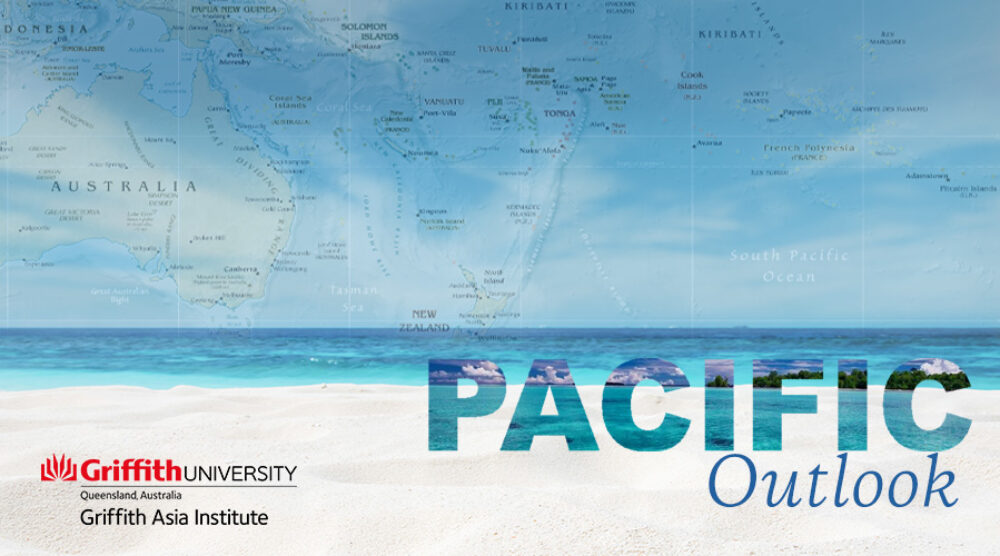Marshallese remain unsatisfied over Runit Dome reporting
In Marshall Islands, the US Department of Energy (DoE) has presented its latest report on the Runit Dome. The Dome is a concrete bunker that stores contaminated material after years of nuclear weapons tests. The people who lived on Enewetak Atoll were forced to leave their home atoll in 1947 to make way for US nuclear weapons tests, and were allowed to return home in 1980, when the Runit Dome and a partial radiation clean up of the atoll were completed.
The DoE report found no indication that the radioactive material in the dome is having any “measurable adverse effect on the surrounding environment”. This is despite significant cracking of the dome and concerns about the effects of rising sea level.
The report has been largely rejected by the chair of the National Nuclear Commission in RMI, Rhea Moss-Christian. She has called for either independent research into the current status of the dome or peer review of the work undertaken by DoE scientists.
Departure of seasonal workers from Vanuatu delayed
Questions hang over the restart to the Seasonal Workers’ Program (SWP) in Australia. A farewell ceremony for over 160 workers from Vanuatu who were expected to depart for the Northern Territory this week was cancelled at the last minute. The reason for the sudden shift was that the Council of Ministers had not given the go-ahead for the workers to leave the country.
A spokesperson for the Prime Minister indicated that there was a lack of support among ministers. This may reflect a significant level of community anxiety around people being exposed to COVID-19 in Australia. There are also ongoing delays associated with the repatriation of ni-Vanuatu workers who are stuck in Australia, unable to return home.
The government of Vanuatu suspended new deployments of SWP workers earlier in the year as part of its measures to prevent COVID-19 entering the country.
Solomon Islands government going ahead with controversial flight
The government of Solomon Islands has confirmed its intention to put on a charter flight that will bring in passengers from China. This is despite significant community concern about the risks associated with entry of people from countries where COVID-19 is present. To date, Solomon Islands has not recorded any COVID-19 infections.
The flight will serve to repatriate Solomon Islanders, many of whom are students. It will also bring in the new Chinese ambassador to Solomon Islands who is yet to take up the posting as well as other embassy staff. There has been a degree of pressure on the government of Solomon Islands to allow for this to happen in order for the bilateral relationship to proceed. High on the agenda is the commencement of work on infrastructure projects to support the Pacific Games. The Games are scheduled to be held in Solomon Islands in 2023.
Drivers of Change consultations across the region
In several countries national ‘drivers of change’ consultations have been underway. This is part of the development of the ‘2050 strategy’ for the Blue Pacific, as decided at last year’s meeting of Pacific Islands Forum leaders.
The 2050 strategy is envisaged as a holistic and wide-ranging platform for the region’s future. However, there is no denying the centrality to addressing the impacts of climate change as a ‘driver of change’ across the region. Unsurprisingly, Prime Minister Bainimarama of Fiji has been both blunt and forceful: “By 2050, every economy in our region must achieve net-zero global emissions – zero excuses and we must have built a resilient Pacific – one that is adapted to the worsening climate impacts we know are headed our way.”
Australia has yet to undertake a national consultation along the lines of those that have been carried out elsewhere.
Esper uses Pacific visits to highlight US concerns about China in the region
During his whistle-stop tour of the region, US Secretary for Defense Mark Esper made no bones about the perception that the US administration has of China’s influence in the region.
Esper’s trip to Palau was the first ever made by a US Secretary for Defense, making it significant even though it lasted only a few hours. Whilst speaking to journalists, Esper noted that the US would stand with Palau to defend shared values and interests to protect an international system that is “that is under threat from China, in its ongoing destabilising activities in the region.”
Whilst in Guam, Esper met with his Japanese counterpart, Minister Taro Kono. This was given extra significance in light of the announcement of President Shinzo Abe’s resignation that came at the same time.
Tess Newton Cain is an Adjunct Associate Professor at the Griffith Asia Institute and project lead of the Pacific Hub.








